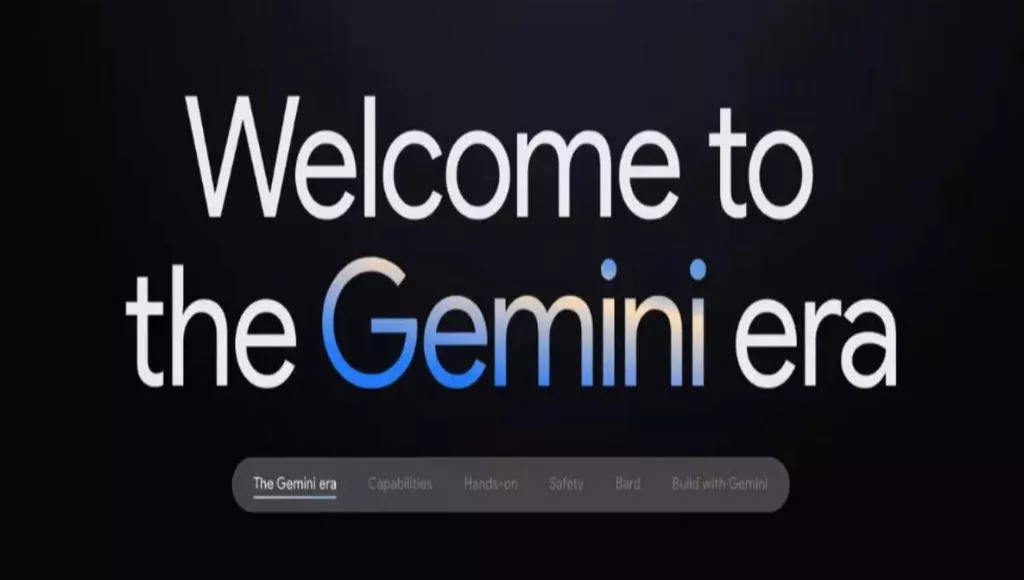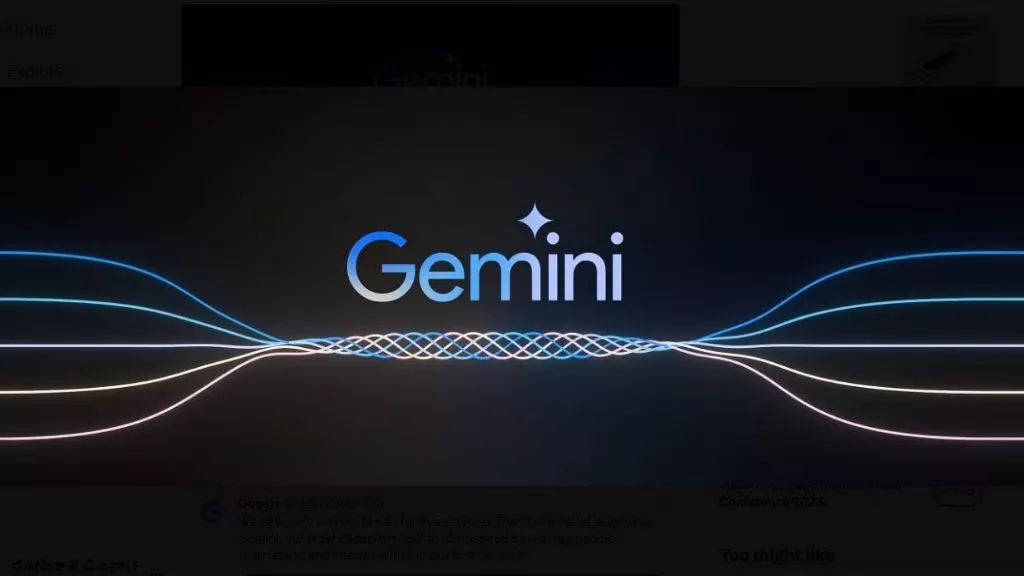Key Takeaways:
- Google launches its new multimodal large language model ‘Gemini’ on AI search tool ‘Bard’
- The chatbot will be available in three versions – Ultra, Pro, and Nano, and is capable of understanding and generating text, video, audio, images, and code
- Pixel users can try out Gemini on WhatsApp
Merely a week after reports speculated that Google had postponed the launch of Gemini until January 2024, the company officially launched its highly anticipated ChatGPT-style AI chatbot through Bard – Google’s conversational AI tool for Search.
Despite remaining an afterthought in the sector dominated by Microsoft-backed OpenAI’s ChatGPT, Google has improved Bard’s capabilities by bringing in steady new updates.
Google’s AI chatbot also continuously struggled to keep up with the quality of responses generated by GPT-3 and GPT-4, but that is all set to change with the latest upgrade.
Google Unveils Gemini – The Tech Giant’s Most Advanced AI Model To Date
On Wednesday, December 6, Google announced that Bard will be powered by the tech giant’s latest large language model (LLM) – Gemini. The tech behemoth calls Gemini its most advanced and capable model yet, one it claims can match and even exceed OpenAI’s chatbots.

Dennis Hassabis, the head of Google Deepmind, the team that helped develop the AI, says it was built “ground up” to be “natively multimodal”. Gemini can seamlessly read and generate a wide variety of data types, including text, code, audio, image, and video.
First announced at the Google I/O developer conference in June, Gemini 1.0 will be available to English-speaking users in 170 countries.
The generative AI comes in three versions:
- Gemini Ultra – The largest and most capable model designed for highly complex tasks
- Gemini Pro – Fast, efficient, and capable of performing a wide range of tasks
- Gemini Nano – Smallest, fastest, and most efficient model meant for on-device tasks
Bard is running the middle-tier Gemini Pro, which is designed for more advanced reasoning, planning, and understanding, and is freely available to all Google account holders.
Meanwhile, Pixel 8 owners can try out the smaller Gemini Nano, which suggests text replies on WhatsApp and the voice recording app, with support for Gboard coming soon.
Right now, Gemini on Bard will be limited to just text-based queries and prompts, so users can’t take full advantage of the LLM’s capabilities. But Google has plans to roll out a more advanced version of Bard sometime in 2024 that will be powered by Gemini Ultra. The company touts “Bard Advanced” as the multimodal AI that can work with images, audio, video, and coding.
Relate Reading: Google Postpones Launch of GPT-4 Rival ‘Gemini’ Until January 2024
How To Use Google Gemini With Bard?
To get access to Gemini, head over to the Bard website and log in using your Google account. Once logged in, you can simply start by typing in prompts and the chatbot will do its best to reply to you with accurate answers.
Gemini also helps fire up a conversation by suggesting specific prompts like how to make a mocktail recipe, take care of plants, or understand a type of diet.
However, you need to note that the LLM is not a perfect system and Google is currently experimenting with it. So you might come across some glitches or mistakes in its responses.
One of Gemini’s strongest points is its integration with other Google services. You can tag “@Gmail” in the prompt and it will summarize your emails for the day, or “@YouTube” to explore a given topic with videos.
Relate Reading: First GTA 6 Trailer Released Early Following Social Media Leak
Where and How is Gemini Available For Users?
Gemini Pro on Bard is free to use in 170 countries. Google is yet to reveal details of any subscription plans but could introduce one with the launch of Gemini Pro on Bard Advanced next year.
As of now, the chatbot can only understand prompts in English, with support for other languages expected soon. Gemini will be available to Search users in 170 countries.
Unfortunately, for the time being, over 400 million users in the EU won’t be able to use Gemini, as was the case with Google’s previous AI offerings.
Developers will get access to Gemini through the Google Cloud API starting December 13, 2023.
